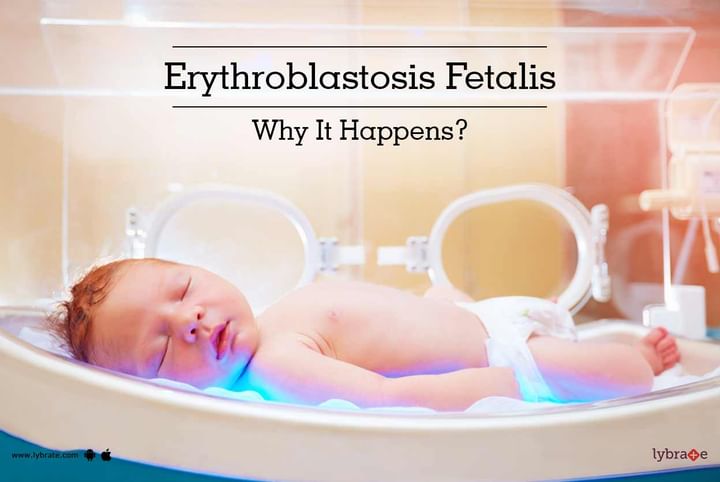Erythroblastosis Fetalis - Why It Happens?
What is erythroblastosis fetalis?
Erythroblastosis fetalis is also known as haemolytic anaemia in the newborn. This occurs due to blood incompatibility in the mother and foetus. Due to this incompatibility, the antibodies present in the mother’s blood, will pass through the placental barrier and attack the blood cells of the foetus. This will lead to the destruction of the red blood cells of the foetus and it is likely to cause anaemia in the foetus. This condition varies from mild to very serious. In its moderate or severe stage, the erythroblasts or immature red blood cells are formed in the blood of the foetus and this disease is called erythroblastosis fetalis.
Why does it happen?
The two main causes of erythroblastosis fetalis are Rh incompatibility and ABO incompatibility.
- Rh Incompatibility: When the mother is Rh –ve and the father is Rh +ve, there is a good chance for the baby to be Rh +ve. The antigens present in the blood of the Rh +ve baby will behave like a foreign agent and the mother will produce antibodies against it. If it is the first pregnancy, then the child may not be at risk, however, if the second child ends up being of +ve blood group again, then the antibodies present in the mother’s blood will attack the baby and may result in a spontaneous abortion.
- ABO Incompatibility: This usually occurs when the mother’s blood group A, B, O does not match the baby’s. This causes fewer complications in comparison to Rh incompatibility, but it may be severe if the child has a very rare blood group.
How to avoid it?
It is a highly preventive condition. Firstly, you have not tested your blood group; it is advised to get it tested along with the blood group of the father. If you already know your blood group, then you must mention it to your doctor. If the father has negative blood group, then there will be no problem. However if the father is Rh positive, then it is advised to get routine tests done by the doctor.
The other preventive measure to take is a treatment called RhoGAM or the Rh immunoglobulin. It reduces the reaction of the mother to the baby’s blood cells. This shot is administered around the 28th week of the pregnancy. It is also administered 72 hours after the birth of the baby with the positive blood group. If you wish to discuss about any specific problem, you can consult a pediatrician.



+1.svg)
